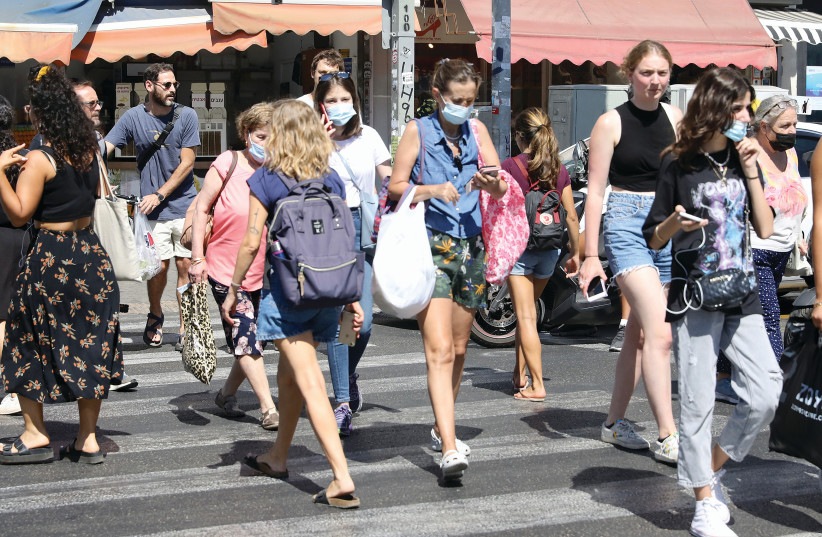COVID-19 in Israel: Number of serious patients rises again, hospital strike goes on
if(window.location.pathname.indexOf(“656089”) != -1){document.getElementsByClassName(“divConnatix”)[0].style.display =”none”;}else if(window.location.pathname.indexOf(“/israel-news/”) != -1){ document.getElementsByClassName(“divConnatix”)[0].style.display =”none”; var script = document.createElement(‘script’); script.src = ‘https://player.anyclip.com/anyclip-widget/lre-widget/prod/v1/src/lre.js’; script.setAttribute(‘pubname’,’jpostcom’); script.setAttribute(‘widgetname’,’0011r00001lcD1i_12258′); document.getElementsByClassName(‘divAnyClip’)[0].appendChild(script);}else if(window.location.pathname.indexOf(“/health-science/”) != -1){ document.getElementsByClassName(“divConnatix”)[0].style.display =”none”; var script = document.createElement(‘script’); script.src = ‘https://player.anyclip.com/anyclip-widget/lre-widget/prod/v1/src/lre.js’; script.setAttribute(‘pubname’,’jpostcom’); script.setAttribute(‘widgetname’,’0011r00001lcD1i_12246′); document.getElementsByClassName(‘divAnyClip’)[0].appendChild(script);}
 A TEL AVIV crosswalk this week, with a mix of masked and unmasked pedestrians. (credit: MARC ISRAEL SELLEM/THE JERUSALEM POST)
A TEL AVIV crosswalk this week, with a mix of masked and unmasked pedestrians. (credit: MARC ISRAEL SELLEM/THE JERUSALEM POST)




Comments are closed.